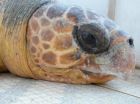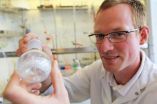(Press-News.org) Parts of Australia's fruit and vegetable industry are under threat, with Queensland University of Technology (QUT) scientists racing to find new ways to control a major horticultural pest before chemical treatments are restricted.
Associate Professor Anthony Clarke, from QUT's Faculty of Science and Technology in Brisbane, is leading Australia's largest team of university researchers examining non-chemical based ways to fight fruit flies, including promising "lure and kill" techniques using ginger essence.
Professor Clarke, lead author of the largest ever review of Queensland fruit fly research recently published in the international journal Annals of Applied Biology, said there were major gaps in the research of this destructive Australian pest.
"Most research has not focused on issues related to the control of the fruit fly," he said.
"While we have very detailed information about select aspects of the insect's biology, much knowledge of the organism's general biology and ecology, particularly information crucial to developing sustainable pest management options, is largely lacking."
The Australian Pesticides and Veterinary Medicines Authority (APVMA) is reviewing the use of dimethoate and fenthion, which are insecticides used for fruit fly control, because of possible human health and environmental concerns. The chemicals are banned or have restricted use in Europe and the USA.
A draft report, scheduled for release by mid-year, is expected to restrict or possibly ban uses of these chemicals in Australia.
The APVMA previously said any changes to existing uses of dimethoate and fenthion for fruit fly control could have a significant impact, affecting the whole fresh fruit and vegetable supply chain.
The insecticides are used in Australia to treat commercially grown fruits and vegetables such as apples, avocados, capsicums, eggplants, strawberries and stone fruit, including post-harvest dipping of some crops.
"It is widely expected the use of dimethoate and fenthion is going to be restricted. The loss of these chemicals would be a major problem for fruit growers, particularly fruit and vegetable growers in tropical and subtropical Australia," Professor Clarke said.
"Our research is fundamentally important to ensure that Australia's fruit and vegetable industry continues to be successful."
Professor Clarke said a new insectary lab at QUT's Gardens Point campus will enable researchers to breed and study a pest that costs the economy about $100 million a year in regulatory and control costs and ruined produce.
Research underway at the insectary, which is custom built to maintain conditions suitable for fruit flies, includes:
Investigating lure and kill techniques using ginger essence (zingerone) to attract male fruit flies, which are then killed using a small amount of insecticide placed in traps. Zingerone has been found to attract fruit fly species that don't usually respond to lures.
Answering fundamental questions about fruit fly ecology, including foraging and mating habits, to better inform growers on pest management.
Examining the genetic make-up of fruit flies in regions of the world to determine if there are different species. This research could have major implications for trade.
Research fellow Dr Solomon Balagawi, who is among six researchers and PhD students studying fruit flies at QUT, said the research would help inform growers of best practice to reduce the use of insecticides.
"If fruit flies are a major pest we have to understand their ecology," he said.
"There are fundamental questions we still don't know. Through research we can pass on some recommendations that can be easily adopted by growers to repel fruit flies without relying only on chemical-based treatments."
Professor Clarke said fruit flies, once confined to the tropical and subtropical coastal Queensland and northern NSW, had become more widely established in eastern Australia. Outbreaks have also occurred in other Australian states, including South Australia and Western Australia, where the fly does not normally occur.
###
Fruit fly research at QUT is partly supported through $1.4 million in grants from the Cooperative Research Centre for National Plant Biosecurity, through the Commonwealth Government's Cooperative Research Centres (CRC) program.
Qld fruit fly scientists in race against time
2011-06-24
ELSE PRESS RELEASES FROM THIS DATE:
Cassini samples the icy spray of Enceladus water plumes
2011-06-24
The NASA/ESA/ASI Cassini-Huygens mission has directly sampled the water plumes jetting into space from Saturn's moon Enceladus. The findings from these fly-throughs are the strongest evidence yet for the existence of large-scale saltwater reservoirs beneath the moon's icy crust.
Enceladus' water plumes shoot water vapour and tiny grains of ice into space. They originate from the 'tiger stripe' surface fractures at the moon's south pole, and create the faint E-ring, which traces the orbit of Enceladus around Saturn.
The Cassini spacecraft discovered the plumes in 2005 ...
Debenhams Reveals Parents Need 'Nestoration' When Children Leave Home
2011-06-24
Debenhams has revealed that parents are stockpiling cash for investment in a range of household improvements after their children have gone to University in the autumn or left home, according to a poll carried out by the high street retailer.
Debenhams quizzed 1,000 parents with teens and asked them when they were likely to invest significant sums in redecorating or refurnishing their homes. The department store found that 74% of parents, battered by the costs of raising their kids, were planning to hold on to their cash and refurbish their homes after their kids have ...
Exeter study brings brain-like computing a step closer to reality
2011-06-24
The development of 'brain-like' computers has taken a major step forward today with the publication of research led by the University of Exeter.
Published in the journal Advanced Materials and funded by the Engineering and Physical Sciences Research Council, the study involved the first ever demonstration of simultaneous information processing and storage using phase-change materials. This new technique could revolutionise computing by making computers faster and more energy-efficient, as well as making them more closely resemble biological systems.
Computers currently ...
Exeter study reveals US turtles' movements
2011-06-24
A University of Exeter team has monitored the movements of an entire sub-population of marine turtle for the first time. The study confirms that through satellite tracking we can closely observe the day-to-day lives of marine turtles, accurately predicting their migrations and helping direct conservation efforts.
Writing in the journal Diversity and Distributions, lead author and University of Exeter PhD student Dr Lucy Hawkes (now at Bangor University) describes the migrations of a population of loggerhead turtles in the US Atlantic Ocean over a decade (1998�). ...
iFund Lending Announces New $2 Million Lending Facility for Entrepreneurs
2011-06-24
iFund Lending is pleased to announce that it has made an additional $2 million available in its lending facility for western Canadian entrepreneurs and companies requiring a prudent financing alternative to banks, credit unions and other alternative lenders. iFund Lending provides entrepreneurs with business loans, bridge financing, franchise acquisition, purchase-order financing, debt consolidation, re-mortgages, SR&ED and receivables factoring, and other proven asset-based alternative methods of financing. Borrowers are able to access between $25,000 and $1 million, ...
'Language tests being misused' -- new study
2011-06-24
A seminal article on language testing, co-authored by Dr Glenn Fulcher, a Reader in Education at the University of Leicester, argues that some agencies are using unsuitable language tests to achieve policy ends.
Dr Fulcher, and Professor Fred Davidson of the University of Illinois Department of Linguistics, argue that generic tests are being used for multiple purposes because some policy makers go for "cheap and simple solutions" to complex problems, such as immigration.
Their article, entitled Test architecture, test retrofit, which has won this year's Best Paper ...
Tampa Swingers Announce Two Hotel Takeovers
2011-06-24
Swinglifestyle, the largest swingers site has teamed up to sponsor two hotel takeovers with Tampa Bay Escapes and Hedo Parties. The first event is Tampa Bay Escapes 3, which Tampa Swingers have scheduled for July 28-31,2011 (Thursday - Sunday).
Tampa Bay Escapes 3 is a 3 day / 3 night Complete Hotel Takeover and convention, with 15 Great Play Rooms & Hospitality Rooms, Libation Room every night courtesy of SwingLifeStyle.com. Prizes and Travel give-aways will also be included in the event. TBE has a Great line-up of entertainment and activities, plus TBE's signature ...
Chemist solves riddle of killer diseases
2011-06-24
Anthrax, septicemia and meningitis are some of the planet's most deadly infections. In part because doctors lack basic insights to prevent and cure diseases caused by so called Gram-positive bacteria. Now, a chemist from the University of Copenhagen has revealed the mechanism behind these deadly infections.
By creating a synthetic version of a Gram-positive bacterial endotoxin, Danish synthetic chemist Christian Marcus Pedersen has made a contribution that'll compel immune biologists to revise their textbooks. More importantly, he has paved the first steps of the way ...
Drug side effect linked with increased health risks for over 65s
2011-06-24
A side effect of many commonly used drugs appears to increase the risks of both cognitive impairment and death in older people, according to new research led by the University of East Anglia (UEA).
As part of the Medical Research Council's Cognitive Function and Ageing Studies (CFAS) project, the study is the first systematic investigation into the long term health impacts of 'anticholinergic activity' – a known potential side effect of many prescription and over the counter drugs which affects the brain by blocking a key neurotransmitter called acetylcholine. The findings ...
Youth cybercrime linked to friends' influence
2011-06-24
EAST LANSING, Mich. — Peer influence and low self-control appear to be the major factors fueling juvenile cybercrime such as computer hacking and online bullying, according to a new study led by a Michigan State University criminologist.
Thomas Holt, assistant professor of criminal justice, said the findings reinforce the need for parents to be more aware of their children's friends and Internet activities.
"It's important to know what your kids are doing when they're online and who they are associating with both online and offline," Holt said.
The study, which ...




